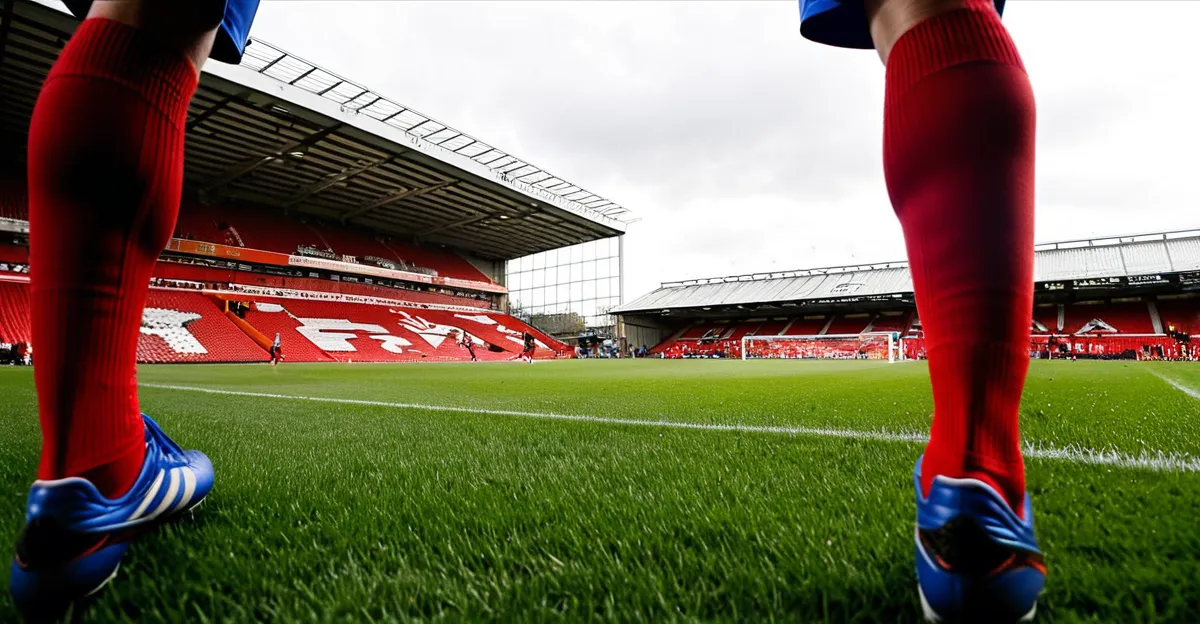Economic Influence of Foreign Ownership in UK Football Clubs
Foreign ownership has markedly transformed the economic impact of foreign investment on UK football clubs. By injecting substantial international funds, many clubs have seen their club valuations soar, often reaching unprecedented heights. This influx of capital has enhanced financial power, allowing clubs to compete in lucrative player transfers and boost wage structures, fostering a more competitive environment both domestically and in European competitions.
Additionally, foreign investors typically prioritize growing diverse revenue streams, such as global broadcasting rights, merchandising, and sponsorship deals. This strategic expansion diversifies income sources beyond traditional ticket sales, stabilizing club finances. For example, international backers often leverage global networks, opening up commercial partnerships previously inaccessible to clubs with solely local ownership.
Additional reading : Can the Rise of Women’s Football in the UK Revolutionize the Sport?
The effect on football club finances is evident in spending habits. Clubs backed by foreign investment can afford to pay premium wages and acquire top talent, which in turn raises the club’s profile and commercial appeal. However, this can also lead to increased wage bills and amplified financial risks if revenues don’t match spending.
In summary, foreign investment acts as a catalyst for revenue growth and enhanced club valuations, reshaping UK football’s economic landscape with a clear emphasis on global commercialisation and competitive spending power.
Topic to read : How Can Innovative Training Techniques Transform Football Performance?
Sporting Performance and Club Success
Foreign ownership often transforms clubs by boosting sporting success through significant investment in player recruitment and youth development programmes. Targeted funding allows clubs to attract higher-caliber players, improving their competitiveness both domestically and internationally.
For instance, owners may inject capital to strengthen the squad with seasoned professionals alongside homegrown talent. This approach balances immediate results with sustainable growth. As a result, clubs frequently experience enhanced performances in leagues and continental competitions, reflecting better competitive balance.
Furthermore, investment in youth academies creates a pipeline of promising players, reducing reliance on expensive transfers over time. Such long-term strategies contribute to continuous club success and promote financial stability.
Numerous clubs under foreign ownership have recorded notable improvements in their trophy records post-takeover. By combining strategic recruitment with effective coaching, these teams often secure championships and cups, elevating their profile and fanbase.
In summary, foreign ownership’s role in sporting success lies in its capacity to fund quality player acquisition and nurture future stars, fostering a virtuous cycle of growth and achievement. These advantages are pivotal for clubs aiming to compete consistently for top honours on all fronts.
Cultural and Social Impacts on Fans and Communities
New ownership often triggers significant shifts in club identity and traditions, affecting fan culture deeply. Fans may feel the club’s heritage is at risk when leadership focuses more on commercial gains than long-standing values. This shift challenges supporters’ emotional connection, sometimes creating a divide between those embracing change and others who cling to traditional symbols.
Supporter reactions typically vary. Some fan groups express cautious optimism, hoping new resources will enhance team performance. However, skepticism is common, especially when management decisions seem detached from the club’s roots. In many cases, organized protests arise, reflecting wider dissatisfaction within the fan base. These protests highlight a desire for respect toward the club’s history and transparency in decision-making.
Community relations also transform under new ownership. Initiatives aim to engage local supporters and boost community involvement, yet their effectiveness depends on genuine commitment. Programs that deliver social benefits—such as youth development and local charity support—help rebuild trust and strengthen the bond between club and community. Overall, navigating these cultural and social dynamics is critical for new owners to cultivate a unified and passionate fan culture that honors the club’s legacy while embracing future growth.
Changes in Football Club Management and Governance
Football club management has undergone significant transformation, with club management structures becoming more sophisticated and dynamic. Many clubs have seen a complete reorganisation of their management teams and hierarchies, blending traditional roles with modern business practices. This shift aims to streamline decision-making and improve operational efficiency.
The rise of foreign ownership models has notably influenced governance. Foreign owners often bring distinct perspectives and prioritize long-term strategy, impacting boardroom dynamics. Their involvement typically introduces more global commercial ambitions and diversified revenue streams, altering traditional club priorities.
Moreover, governance structures have evolved towards greater transparency and accountability. Clubs are increasingly adopting formal governance frameworks to align with financial fair play regulations and respond to stakeholder demands for openness. This evolution includes clearer delineation of responsibilities between owners, boards, and executive management, fostering more balanced and strategic decision-making.
Understanding these changes is crucial for grasping how modern football clubs operate. The complex interplay between ownership models, boardroom culture, and governance practices ultimately shapes a club’s success on and off the pitch.
Regulatory Challenges and Oversight
Understanding the complexities behind football club ownership
The Premier League rules and Football regulation set strict frameworks to manage club ownership, especially focusing on foreign investors. Clubs must adhere to fit and proper tests, designed to assess whether prospective owners uphold integrity, financial stability, and commitment to the sport’s values. These tests scrutinize an owner’s background to prevent risky or unsuitable individuals from controlling clubs.
Recent controversies surrounding foreign takeovers have prompted renewed government interventions. In response, authorities have tightened regulations, ensuring greater transparency and accountability in ownership structures. This includes more rigorous assessments and mandatory disclosures. Public debate has also influenced policy, with fans and stakeholders voicing concerns about clubs being treated as mere financial assets rather than community institutions.
The role of government policy extends beyond enforcement; it shapes the evolving landscape of football club ownership by balancing commercial interests with the sport’s traditions. This dynamic oversight framework aims to protect clubs while fostering competitive, fair play. Understanding these regulatory challenges clarifies why ownership in football continues to attract close scrutiny, reflecting the sport’s cultural and economic significance.
Case Studies: Manchester City, Chelsea, and Others
Examining Manchester City’s transformation under Abu Dhabi ownership reveals a dramatic shift in club fortunes. Since the takeover in 2008 by Sheikh Mansour’s Abu Dhabi United Group, the club experienced significant financial investment, leading to improved training facilities, star player signings, and world-class managerial appointments. This revolutionized the team’s competitiveness, resulting in multiple Premier League titles and consistent Champions League presence. The financial backing allowed long-term planning and infrastructure upgrades, setting new standards in English football.
Chelsea’s rise after Russian investment exemplifies a similarly profound change. When Roman Abramovich bought the club in 2003, his significant capital injections helped Chelsea secure top players and modernise operations. This investment transformed Chelsea into a global football powerhouse, with multiple league titles and European trophies. The club’s strategic focus on both star signings and youth development underscores the positive effects of strong foreign ownership.
These landmark football takeovers have influenced other UK clubs and the league itself. The influx of foreign capital has raised competition levels, driven up transfer fees, and increased global fan engagement. However, concerns over financial disparities and club identities also arise, prompting ongoing debate about the future structure of English football.
Pros and Cons of Foreign Ownership in UK Football
Foreign ownership in UK football brings clear advantages of foreign investment. It often injects significant capital, enabling clubs to improve facilities, attract world-class talent, and compete internationally. These financial boosts can translate into better performances and global brand growth, benefiting both teams and local economies.
However, there are notable disadvantages. Critics argue that foreign investors sometimes prioritize profit over club heritage, risking the loss of local identity and fan influence. Concerns about long-term sustainability arise when ownership shifts focus to short-term gains rather than community engagement or youth development. This tension highlights a conflict between commercial interests and football traditions.
A balanced analysis requires acknowledging both sides. While capital investments have modernized many clubs, maintaining autonomy remains a challenge. Stakeholders fear that some foreign owners might not fully respect established club cultures or may lack commitment beyond financial returns.
Expert opinions often emphasize the importance of governance frameworks that allow external investment but protect club values. Such measures can ensure that foreign ownership supports growth without undermining tradition. For those exploring this complex topic further, insight can be gained by consulting resources on football club ownership dynamics.

